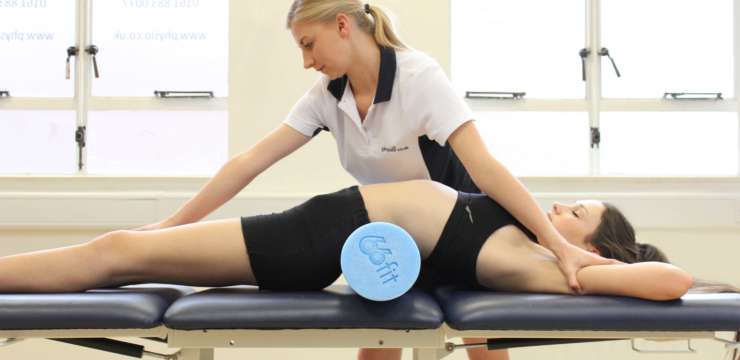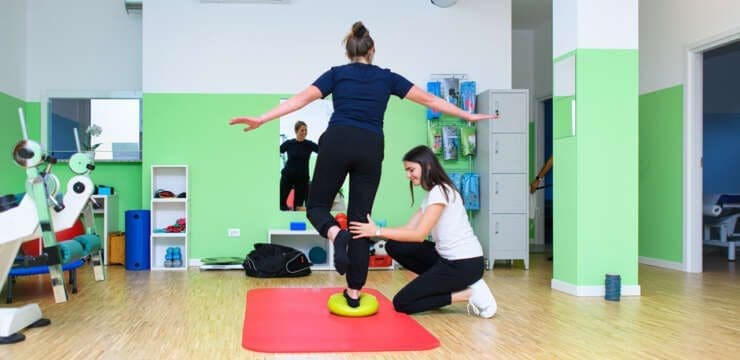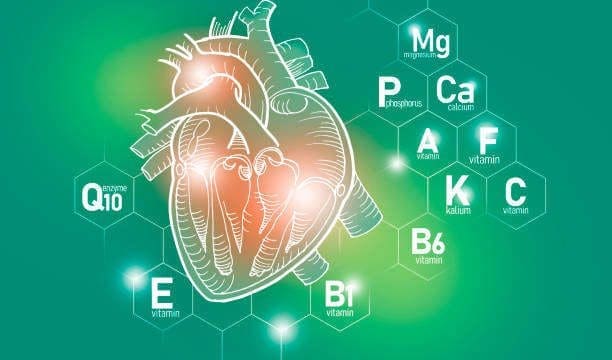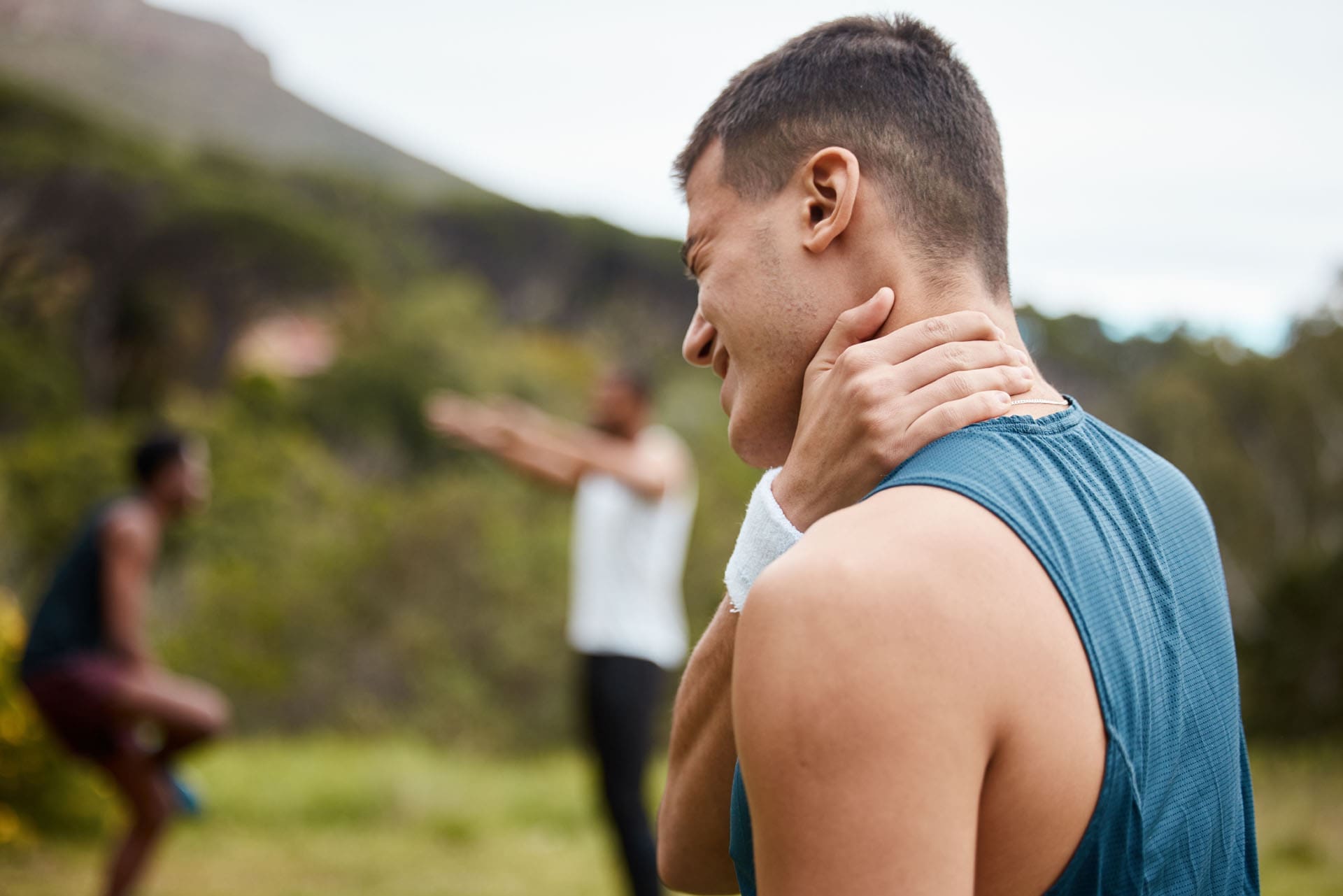
Table of Contents
“Reclaiming Athletic Strength After a Car Accident: A Health Coach’s Guide to Integrative Recovery”
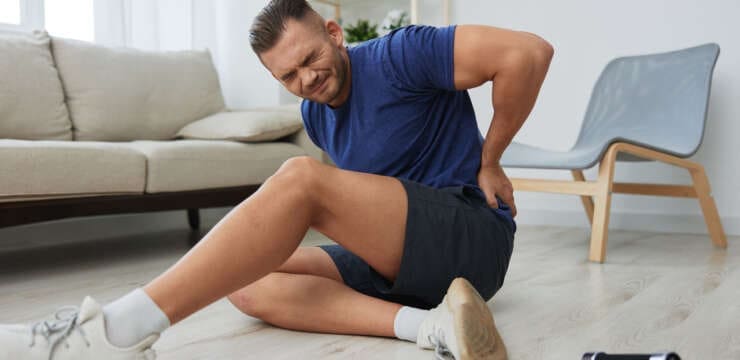
I. Introduction: Healing Isn’t Just Physical
When an athlete is involved in a car accident, the consequences ripple far beyond a sore neck or bruised ribs. Beneath the surface lies a more complex reality: disrupted movement patterns, strained mental focus, chronic inflammation, and emotional exhaustion. For competitive and recreational athletes alike, the physical pain is just one part of the story. What’s often overlooked is how a motor vehicle accident (MVA) disrupts the entire ecosystem of health, including sleep, nutrition, motivation, and athletic identity.
That’s where integrative recovery comes in. The traditional medical model often focuses on immediate injury treatment, such as X-rays, medications, or a quick visit to the chiropractor. But for athletes to fully return to form, healing must be approached holistically. Nutrition, movement retraining, stress regulation, and mindset restoration all play essential roles in rebuilding the athlete’s performance, resilience, and confidence.
At HealthCoach.Clinic, we know that healing isn’t a one-size-fits-all solution. Instead, it requires a partnership between the athlete and a knowledgeable guide—a health coach—who can walk beside them through every stage of recovery. By combining lifestyle coaching, nutrition planning, and personalized accountability, health coaches become the supportive bridge between medical care and total-body transformation.
This article will examine how health coaches assist athletes in regaining strength, balance, and control following a car accident. Whether it’s managing post-injury inflammation, overcoming anxiety, or returning to sport with confidence, the right coaching approach can turn trauma into transformation.
? References:
Enhancing Athletic Performance and Recovery with Acupuncture Treatment
The Emotional Impact of Car Accidents: Coping and Moving Forward
HealthCoach.Clinic Mission & Wellness Approach
II. How Motor Vehicle Accidents Affect Athletes Differently
For the average person, a car accident is a painful and stressful experience. But for an athlete, it can feel like a total identity crisis. Suddenly, the body that once ran marathons, lifted weights, or competed on the field no longer moves the way it used to. Even after outward injuries have healed, subtle dysfunctions can linger, affecting strength, performance, and motivation. This is why motor vehicle accidents (MVAs) impact athletes differently—physically, mentally, and emotionally.
1. Musculoskeletal Disruption Beyond the Obvious
Athletes are finely tuned machines. Their joints, muscles, and nerves are trained for efficiency, balance, and explosive movement. A collision—even at low speeds—can throw that delicate system off track. Common post-MVA injuries include:
- Whiplash: Neck strain affecting shoulder and spine mechanics
- Ligament sprains or tears: Especially in the spine, knees, and shoulders
- Spinal misalignment: Altering posture, gait, and core engagement
- Disc bulges: Leading to nerve impingement and altered motor control
Even mild injuries can interfere with strength, flexibility, and coordination. Over time, compensation patterns develop—such as shifting weight away from a sore ankle or rotating the torso unevenly—which may lead to chronic pain or reinjury if not properly addressed.
2. Nervous System Strain and Performance Drop
When nerves are compressed or inflamed (as with a herniated disc or vertebral misalignment), they can’t communicate effectively with muscles. This can create weakness, imbalance, or numbness, especially in the extremities. In sports, where milliseconds and micro-movements matter, this kind of disruption is performance-altering.
Moreover, the autonomic nervous system may become overactivated due to the trauma of the accident. When the body is stuck in “fight or flight” mode, digestion, recovery, and muscle repair are deprioritized. Sleep disturbances, changes in appetite, and energy crashes often follow.
3. Mental and Emotional Impact: Invisible Yet Powerful
Studies show that people who suffer from car accidents are at higher risk for anxiety, depression, and post-traumatic stress disorder (PTSD) (Florida Law Group, 2023). For athletes, these emotional effects can manifest as:
- Fear of reinjury
- Loss of identity or purpose
- Lack of motivation to train
- Sleep disruption due to hypervigilance or anxiety
These mental health concerns are just as important to address as physical injuries. Left untreated, they can lead to long-term declines in athletic performance, or worse, cause the athlete to give up on their sport entirely.
4. The Need for Whole-Body Recovery
An athlete’s body is their greatest tool, and regaining control of it after an accident requires more than chiropractic adjustments or medications. True recovery occurs when physical, mental, and nutritional factors are addressed simultaneously.
This is where a health coach becomes invaluable—helping athletes:
- Understand how their body is healing
- Develop routines to restore energy and movement
- Address fears and regain confidence
- Rebuild a sustainable lifestyle for performance and prevention
At HealthCoach.Clinic, we work with athletes to support not just the injury, but the person as a whole. From meal planning to mobility to mindset, every part of recovery matters.
? References:
Psychology of Sports Injuries
Physiotherapy for Sports Injuries
Dr. Alexander Jimenez – Clinical Observations
III. Physical Recovery: Movement, Alignment, and Rebuilding Strength
Once the initial shock of a motor vehicle accident wears off, most athletes ask the same question: “When can I train again?” The answer isn’t always straightforward. Healing after a car accident requires more than letting time pass—it requires restoring movement, realigning the body, and retraining strength and function from the ground up.
1. The Role of Alignment and Posture in Recovery
Whether the injury is spinal, muscular, or ligamentous, most accident-related dysfunctions involve misalignment. Even a subtle shift in the pelvis or vertebrae can throw off gait, squat mechanics, or shoulder symmetry. This matters tremendously in sports, where power and efficiency rely on biomechanical precision.
Post-accident posture imbalances may show up as:
- Forward head posture
- Uneven shoulders
- Pelvic tilt or rotation
- Knee valgus (inward collapsing) during movement
These patterns not only limit performance but also increase the risk of reinjury if ignored. Health coaches collaborate with chiropractors and physical therapists to observe these patterns, help reinforce good posture habits at home, and integrate corrective stretches or exercises into recovery routines.
2. Rebuilding Strength After Inactivity and Trauma
It’s common for injured athletes to experience muscle atrophy and joint stiffness during the first few weeks after a crash. Inflammation, fear of pain, and inactivity all contribute to weakness, particularly in key stabilizing muscles such as the glutes, deep core, rotator cuff, and postural chain.
This is where movement retraining becomes essential. Using progressive exercises like:
- Isometric holds for joint stability
- Glute bridges, bird-dogs, and side planks for core control
- Bodyweight squats, lunges, or band work for mobility
- Resistance training (as cleared) for gradual strength return
…athletes begin to reclaim their range of motion, coordination, and power. Health coaches play a key role in providing the when, how, and how much—offering customized movement calendars, rest day planning, and form guidance.
3. Supporting Chiropractic and Manual Therapy Results
Athletes often seek chiropractic adjustments, physical therapy, and massage after an accident to relieve joint restriction and muscular tension. While these therapies are powerful, their benefits are most effective when followed up with movement.
This is where health coaches truly shine: we help athletes integrate the benefits of manual therapy into their daily lives. That might mean:
- Practicing breathwork to support thoracic mobility
- Using a standing desk to encourage better spinal posture
- Learning proper warm-ups and cooldowns tailored to their injury
- Keeping a movement journal to track progress
By making recovery an active—not a passive—process, athletes can accelerate healing and reduce setbacks.
Coaching in Action: How We Help
At HealthCoach.Clinic, we don’t prescribe—we guide. When athletes are cleared to move, we help them:
- Set weekly strength and posture goals
- Adjust training volume around injury recovery timelines
- Support interdisciplinary collaboration with PTs and chiropractors
- Build safe return-to-play programs that restore confidence, not just conditioning
We act as the bridge between physical therapy and full performance, offering education, structure, and consistent support.
? References:
The Role of Chiropractic Care in Sports Injury Recovery
Injury Rehabilitation and Sports Recovery
Car Accident Recovery With Chiropractic and Sports Therapy.-,Intestinal%20Damage,recovery%20(Jimenez%2C%202025.)
IV. Nutritional Support for Inflammation, Healing, and Performance
After a motor vehicle accident, an athlete’s body is in a high state of stress and repair. From soft tissue damage to nervous system overload, every cell is working hard to restore equilibrium. However, without the right nutrition, healing slows, inflammation persists, and performance suffers.
Health coaching is essential here—not just to provide information, but to translate nutrition science into daily action. Through personalized meal planning, grocery coaching, and supplement education, we help athletes utilize food as a powerful tool for recovery.
1. Fighting Inflammation with Food
Inflammation is a natural part of the injury recovery process, but when it becomes chronic, it hinders progress. Inflammation can delay muscle healing, prolong joint stiffness, and trigger fatigue. Fortunately, the right foods help calm that fire:
- Omega-3 fatty acids: Found in wild-caught salmon, walnuts, and chia seeds—omega-3s reduce systemic inflammation and support brain function
- Antioxidant-rich fruits and vegetables: Blueberries, spinach, kale, and turmeric reduce oxidative stress and cellular breakdown
- High-quality lean proteins: Chicken, eggs, tofu, and legumes support muscle rebuilding and collagen synthesis
- Herbs and spices: Ginger, turmeric, rosemary, and garlic provide natural anti-inflammatory compounds
As health coaches, we help athletes build anti-inflammatory meals, not with restriction, but with purpose. Instead of “cutting out,” we focus on adding in nutrient-dense options that taste good and support long-term healing.
2. Healing the Gut After Trauma and Medication
After an accident, athletes are often prescribed medications like NSAIDs or muscle relaxants, which can irritate the stomach lining and disrupt gut flora. Combined with stress, disrupted sleep, or poor appetite, this can lead to:
- Bloating or gas
- Acid reflux
- Brain fog or fatigue
- Decreased nutrient absorption
At HealthCoach.Clinic, we take gut health seriously. A well-functioning gut is crucial for vitamin synthesis, immune regulation, and maintaining mood stability—all essential for optimal athletic recovery. Our strategies include:
- Probiotic-rich foods like kefir, yogurt, and kimchi
- Prebiotic fibers from asparagus, bananas, onions, and oats
- Gut-repairing supplements such as L-glutamine, aloe vera, and zinc carnosine
- Supporting mindful eating and stress reduction to promote parasympathetic digestion
We also help athletes track digestive symptoms and adjust their nutrition in real-time, ensuring their gut stays strong throughout the healing process.
3. Strategic Supplementation (When Needed)
While food is a primary concern, some athletes may benefit from targeted supplements after a motor vehicle accident (MVA) to expedite recovery. Common evidence-based options include:
- Turmeric (curcumin): Natural anti-inflammatory and antioxidant
- Magnesium glycinate: Supports muscle relaxation, sleep, and nerve health
- Collagen peptides: Help rebuild connective tissue and cartilage
- Vitamin D and K2: Important for bone health and immune regulation
- B-complex vitamins: Especially for stress support and cellular energy
We don’t promote a pill-for-everything mindset. Instead, we assess individual needs and work with healthcare providers to integrate supplements responsibly into a full nutrition strategy.
4. Practical Meal Planning for Busy Athletes
Healing takes time, but athletes often juggle school, work, rehab, or training, leaving little space for cooking. That’s where coaching becomes powerful. We offer:
- Meal prep guides and quick recipes
- Grocery shopping lists based on injury stage
- Snack swaps for recovery on the go (e.g., protein-rich smoothies, anti-inflammatory trail mix)
- Accountability to stay consistent without burnout or crash diets
Nutrition doesn’t need to be perfect—it needs to be sustainable, flexible, and functional. Our goal is to make food work for healing, not become another source of stress.
Coaching in Action: Healing Through Food
At HealthCoach.Clinic, we’ve worked with countless athletes who never realized how gut health, blood sugar balance, and micronutrient deficiencies were affecting their recovery. By creating clear, customized nutrition paths, we help them move from inflammation and fatigue to vitality, strength, and confidence.
? References:
Chiropractic Scientist – Post-Accident Functional Nutrition
Car Accident Recovery with Chiropractic and Sports Therapy.-,Intestinal%20Damage,recovery%20(Jimenez%2C%202025.)
Dr. Alexander Jimenez – Functional Medicine Observations
V. Stress, Sleep, and Hormone Balance in Athletic Recovery
When an athlete suffers a car accident, their physical injuries are often the first to be treated, but what happens inside the body after trauma is just as important. Stress hormones surge. Sleep becomes disrupted. Appetite and mood shift. These internal changes can interfere with muscle healing, immune regulation, and even gut health. If left unaddressed, the athlete’s recovery slows or stalls completely.
That’s why a health coach’s role includes helping athletes recognize and regulate their internal environment, supporting nervous system balance and hormonal restoration alongside physical healing.
1. The Physiology of Stress After an MVA
A motor vehicle accident triggers the body’s fight-or-flight response, also known as the sympathetic nervous system. This causes a spike in cortisol and adrenaline, preparing the body to respond to perceived danger. While this response is protective in the short term, long-term elevation in stress hormones can have negative effects, such as:
- Increased inflammation
- Poor tissue regeneration
- Blood sugar imbalances
- Impaired digestion and nutrient absorption
- Suppressed immune function
For athletes, this means slower healing, greater fatigue, and heightened anxiety or fear of reinjury. Health coaches help clients identify stress triggers, track their symptoms, and implement techniques that promote parasympathetic (“rest and digest”) healing.
2. Sleep: The Cornerstone of Repair
Sleep is when the body does its deepest healing. Growth hormone is released, tissues regenerate, and memories consolidate. Yet after an accident, many athletes struggle with:
- Falling or staying asleep
- Nightmares or replaying the trauma
- Physical discomfort that interrupts rest
- Nervous system hyperactivity
Chronic sleep deprivation impairs recovery, performance, cognition, and emotional regulation. At HealthCoach.Clinic, we help athletes develop personalized sleep hygiene protocols, including:
- Wind-down routines and screen limits
- Breathwork and mindfulness before bed
- Herbal support (e.g., chamomile, valerian, magnesium glycinate)
- Guided meditations or binaural beats
- Consistent sleep-wake cycles
We track progress through journaling or sleep-tracking tools to ensure sleep becomes a reliable part of the recovery toolkit.
3. Hormonal Imbalance: The Overlooked Barrier
When stress and poor sleep combine, hormonal balance can quickly shift. Athletes recovering from MVAs may experience:
- Low testosterone or estrogen
- Disrupted menstrual cycles
- Adrenal fatigue or burnout
- Poor thyroid function
- Blood sugar volatility
These imbalances affect energy, motivation, weight, mental clarity, and recovery speed. Health coaches are not hormone prescribers, but we are powerful lifestyle partners who can:
- Encourage hormone-supportive nutrition (healthy fats, B-vitamins, complex carbs)
- Recommend stress-reducing adaptogens (e.g., ashwagandha, holy basil—when approved)
- Guide clients toward medical providers for hormone testing
- Help reduce endocrine disruptors (plastics, fragrances, additives) in daily life
- Support blood sugar stability through mindful eating and movement
By restoring hormonal harmony, athletes can feel like themselves again, which is essential for a full return to sport.
4. Coaching Emotional Resilience
The emotional fallout after a car accident is often silent, but deeply felt. A health coach provides something few other providers do: consistent emotional presence. We help athletes:
- Reframe their injury story from loss to opportunity
- Rebuild confidence step by step
- Address fear of reinjury through mindset training
- Create weekly goals that foster hope and momentum
- Identify patterns of self-sabotage or burnout early
We’re not therapists, but we do offer empathetic structure, helping athletes regain their sense of control during chaotic times.
Coaching in Action: Nervous System Healing
At HealthCoach.Clinic, we teach athletes how to use their breath, environment, and routines to create a calm internal landscape. From cold showers to gratitude journaling, we give simple tools that retrain the nervous system to feel safe, focused, and strong.
? References:
The Healing Power of Acupuncture After an Auto Accident
Acupuncture for Car Accident Injuries
HealthCoach.Clinic – Personalized Wellness Programs
VI. Movement Coaching: Rebuilding Daily Function to Return to Sport
After a car accident, even everyday tasks—like getting out of bed, tying shoes, or climbing stairs—can feel overwhelming for an athlete. The idea of returning to sport may seem distant. But with the right support, healing is possible—not just physically, but mentally and emotionally. That’s where movement coaching becomes a game-changer.
At HealthCoach.Clinic, we help athletes move with purpose again, not just for injury recovery, but to rebuild their confidence and capability from the ground up.
1. From Injury to Intention: Functional Recovery as a Process
Injured athletes often deal with stiffness, imbalance, and compensation patterns after a car accident. Their bodies may protect the injured area, leading to movement avoidance, muscle weakness, or asymmetry. The result? Reinjury risk increases if they return to activity too soon or without the right movement patterns in place.
Health coaches are key partners in:
- Reintroducing foundational movements like bending, squatting, and walking
- Assessing movement quality, not just quantity
- Building functional routines that mimic athletic actions in a low-impact way
- Providing emotional reassurance and accountability to stay consistent
We focus on functional restoration—helping athletes move in a way that enables them to live and compete effectively.
2. Neuromuscular Reeducation and Body Awareness
After trauma, the nervous system may disconnect from the musculoskeletal system. Muscles forget how to fire efficiently, joints lose proprioception (body awareness), and coordination suffers as a result.
Health coaches help athletes retrain neuromuscular pathways through:
- Low-load stability drills (e.g., wall sits, heel raises, balance boards)
- Core activation and breathing mechanics (diaphragmatic breathing, 90-90 breathing)
- Controlled tempo movements to rebuild the mind-body connection
- Ground-based mobility exercises for hips, shoulders, and spine
This is not about pushing through pain—it’s about reintegrating the brain and body so movement feels safe again.
3. Creating a Return-to-Play Strategy
Too often, athletes return to their sport based on the calendar, not their readiness. At HealthCoach.Clinic, we help athletes develop personalized return-to-play plans based on:
- Joint mobility benchmarks
- Pain-free range of motion
- Strength-to-bodyweight ratios
- Mental readiness and confidence scoring
- Progressive loading (moving from bodyweight ? resistance, ? sport-specific drills)
We align these plans with input from chiropractors, physical therapists, and nurse practitioners, ensuring each milestone is based on data and readiness, not guesswork.
4. Consistency, Recovery, and Sustainable Progress
One of the biggest challenges after injury is maintaining motivation and consistency, especially when setbacks occur. That’s why coaching matters:
- We provide daily movement schedules and tracking tools
- We celebrate small wins (e.g., “You walked 20 minutes without pain!”)
- We modify workouts to prevent discouragement
- We help athletes recover smarter—not harder—with mobility, foam rolling, and rest protocols
Movement isn’t just for healing—it’s how we restore independence, agency, and strength.
Coaching in Action: Rebuilding Athletic Confidence
At HealthCoach.Clinic, we worked with a teenage soccer player who was sidelined after a rear-end collision left her with whiplash and hip instability. With a carefully designed movement plan, weekly coaching check-ins, and ongoing mindset work, she went from being afraid to jog… to scoring her first goal back on the field six months later.
That’s the power of movement coaching in action: one step, one stretch, one breakthrough at a time.
? References:
Benefits of Pediatric Chiropractic Care for Young Athletes
Enhancing Athletic Performance and Recovery with Acupuncture Treatment
Dr. Alexander Jimenez – Chiropractic and Movement Integration
VII. The Power of Coaching: Accountability, Empathy, and Motivation
In the aftermath of a car accident, athletes don’t just need treatment—they need partnership. While chiropractors, physical therapists, and medical providers address clinical issues, health coaches serve as the connective tissue that holds the recovery journey together. We’re the voice that says, “You’ve got this,” when doubt creeps in. We help transform overwhelming rehab plans into manageable, consistent daily habits. Most importantly, we meet athletes where they are, every step of the way.
1. Accountability Transforms Good Intentions into Results
Injured athletes often know what they should do, but pain, fear, or lack of structure can hold them back. Health coaches help bridge the gap between knowing and doing by:
- Setting weekly goals that are realistic and achievable
- Tracking progress with movement logs, food journals, or stress scores
- Helping athletes troubleshoot obstacles like fatigue or flare-ups
- Celebrating milestones—even the small ones, like sleeping through the night or walking a mile pain-free
With regular check-ins (in person or virtual), athletes are far more likely to stay engaged, avoid burnout, and maintain a sense of control.
2. Empathy Builds Trust—and Keeps Athletes Going
Unlike transactional medical visits, coaching offers ongoing emotional support. Athletes may feel frustrated, disconnected from their identity, or afraid that they’ll never return to their sport. A health coach helps them:
- Normalize their emotions
- Reframe negative self-talk
- Reconnect with purpose and passion
- Create mental anchors that build resilience
Sometimes, the most powerful healing tool isn’t a therapy—it’s having someone say, “You’re not alone in this.”
At HealthCoach.Clinic, we create safe, judgment-free spaces where athletes can express their fears, process their setbacks, and rediscover belief in their bodies.
3. Motivation Through Structure, Vision, and Progress
In the face of injury, many athletes lose their sense of forward momentum. Health coaches help reignite that motivation through:
- Vision mapping: What does the athlete want life to look like after recovery?
- Behavior stacking: Layering small daily wins to rebuild confidence
- Energy management: Teaching how to train smarter, not just harder
- Language upgrades: Shifting from “I can’t” to “I’m learning to…”
Motivation doesn’t always mean pushing harder—it often means creating consistency, clarity, and purpose.
Coaching in Action: The Human Factor
One of our clients—a college volleyball player recovering from a concussion and cervical strain—struggled with motivation, sleep, and fear of returning to impact. While her care team managed her physical treatment, it was through weekly health coaching sessions that she slowly began tracking her meals, journaling her fears, and implementing sleep rituals. Within 10 weeks, she was cleared for light drills—and more importantly, smiling again.
That’s the difference coaching makes: we support the whole athlete, not just the injury.
? References:
HealthCoach.Clinic – Our Approach to Coaching and Care
Chiropractic and Nurse Practitioner for Injury Recovery
Dr. Alexander Jimenez – Holistic Recovery Observations
VIII. Case Snapshot: How a Coaching Plan Transformed a Local Athlete
Sometimes, healing is best understood through a story. At HealthCoach.Clinic, we recently worked with Jade, a 22-year-old competitive long-distance runner from El Paso, who was rear-ended at a stoplight. The accident seemed minor, but over the next few weeks, Jade developed persistent lower back pain, bloating, and fatigue. Her posture changed. Her sleep quality dropped. She couldn’t run more than a few minutes without discomfort—and worse, she didn’t feel like herself anymore.
Jade’s chiropractor diagnosed lumbar joint dysfunction and sacroiliac instability, while a nurse practitioner noted elevated cortisol levels, GI distress, and vitamin D deficiency. The physical treatments were underway, but Jade needed more than appointments. She needed daily support, structure, and confidence-building.
That’s where coaching came in.
1. The Plan: Total Body, Mind, and Lifestyle Recovery
We began with weekly health coaching sessions, focusing on four key recovery areas:
? Movement Reintegration
We developed a progressive walking, stretching, and core-activation routine based on her chiropractor’s guidance. Jade used a foam roller, followed breath-based core activation, and gradually rebuilt her stride.
? Nutrition for Inflammation and Gut Repair
We introduced an anti-inflammatory meal plan rich in omega-3 fatty acids, leafy greens, and collagen peptides. Jade incorporated turmeric, kefir, and magnesium-rich foods, and within weeks, her digestion improved.
? Stress and Sleep Support
By incorporating mindfulness, journaling, and lavender aromatherapy into her evening routine, Jade achieved improved sleep and emotional balance. Her health coach guided her through the use of adaptogens with the provider’s approval.
? Goal Mapping and Emotional Support
We helped Jade create a recovery vision board and tracked mini-milestones, such as her first pain-free jog, cooking healthy meals, and improving her self-talk.
2. The Outcome: Resilience Rebuilt
Within three months:
- Jade resumed regular runs without back pain
- Her digestion stabilized, and energy returned
- She reported sleeping 7–8 hours consistently
- Most importantly, her identity as an athlete felt restored
What made the difference? Not just treatment, but a daily coaching relationship that honored her whole self: her goals, her fears, and her dreams.
Jade’s story reminds us that coaching isn’t an add-on—it’s the anchor that holds recovery together.
? References:
Car Accident Recovery with Chiropractic and Sports Therapy.-,Intestinal%20Damage,recovery%20(Jimenez%2C%202025.)
Dr. Alexander Jimenez – Functional & Personal Injury Integration
HealthCoach.Clinic – Transformational Healing
IX. Conclusion: Empowerment Through Whole-Body Healing
For athletes recovering from a car accident, healing is not just about restoring physical movement—it’s about reclaiming control, confidence, and identity. The journey back to sport requires far more than a few sessions of therapy or a standard rehab protocol. It requires a personalized, whole-person approach that addresses the body, the mind, and the lifestyle behind the athlete.
At HealthCoach.Clinic, we understand that real recovery means helping people reach their full potential. It means healing inflammation with the right foods, calming a stressed nervous system through mindful routines, restoring movement with confidence, and offering structure when life feels out of control.
We work side by side with chiropractors, nurse practitioners, and other healthcare providers, but our role is unique. We coach. We listen. We hold space. We hold clients accountable. We help them rebuild from the inside out.
If you’re an athlete struggling after a motor vehicle accident—or a parent, partner, or coach seeking support—we invite you to explore how personalized health coaching can accelerate and enhance your recovery. Together, we can create a plan that empowers you to move again, eat better, sleep well, and live fully, stronger than ever.
References:
The Emotional Impact of Car Accidents: Coping and Moving Forward
Psychology of Sports Injuries
Physiotherapy for Sports Injuries
The Role of Chiropractic Care in Sports Injury Recovery
Enhancing Athletic Performance and Recovery with Acupuncture Treatment
Acupuncture for Car Accident Injuries
Car Accident Recovery with Chiropractic and Sports Therapy.
Dr. Alexander Jimenez – Functional and Chiropractic Healing
HealthCoach.Clinic – Whole-Person Wellness Coaching
Disclaimers
Professional Scope of Practice *
The information herein on "Functional Post-Accident Healing for Athletes" is not intended to replace a one-on-one relationship with a qualified health care professional or licensed physician and is not medical advice. We encourage you to make healthcare decisions based on your research and partnership with a qualified healthcare professional.
Blog Information & Scope Discussions
Welcome to El Paso's wellness blog, where Dr. Alex Jimenez, DC, FNP-C, a board-certified Family Practice Nurse Practitioner (FNP-C) and Chiropractor (DC), presents insights on how our team is dedicated to holistic healing and personalized care. Our practice aligns with evidence-based treatment protocols inspired by integrative medicine principles, similar to those found on dralexjimenez.com, focusing on restoring health naturally for patients of all ages.
Our areas of chiropractic practice include Wellness & Nutrition, Chronic Pain, Personal Injury, Auto Accident Care, Work Injuries, Back Injury, Low Back Pain, Neck Pain, Migraine Headaches, Sports Injuries, Severe Sciatica, Scoliosis, Complex Herniated Discs, Fibromyalgia, Chronic Pain, Complex Injuries, Stress Management, Functional Medicine Treatments, and in-scope care protocols.
Our information scope is limited to chiropractic, musculoskeletal, physical medicine, wellness, contributing etiological viscerosomatic disturbances within clinical presentations, associated somato-visceral reflex clinical dynamics, subluxation complexes, sensitive health issues, and functional medicine articles, topics, and discussions.
We provide and present clinical collaboration with specialists from various disciplines. Each specialist is governed by their professional scope of practice and their jurisdiction of licensure. We use functional health & wellness protocols to treat and support care for the injuries or disorders of the musculoskeletal system.
Our videos, posts, topics, subjects, and insights cover clinical matters, issues, and topics that relate to and directly or indirectly support our clinical scope of practice.*
Our office has reasonably attempted to provide supportive citations and has identified the relevant research studies or studies supporting our posts. We provide copies of supporting research studies available to regulatory boards and the public upon request.
We understand that we cover matters that require an additional explanation of how they may assist in a particular care plan or treatment protocol; therefore, to discuss the subject matter above further, please feel free to ask Dr. Alex Jimenez, DC, APRN, FNP-BC, or contact us at 915-850-0900.
We are here to help you and your family.
Blessings
Dr. Alex Jimenez DC, MSACP, APRN, FNP-BC*, CCST, IFMCP, CFMP, ATN
email: coach@elpasofunctionalmedicine.com
Licensed as a Doctor of Chiropractic (DC) in Texas & New Mexico*
Texas DC License # TX5807
New Mexico DC License # NM-DC2182
Licensed as a Registered Nurse (RN*) in Texas & Multistate
Texas RN License # 1191402
ANCC FNP-BC: Board Certified Nurse Practitioner*
Compact Status: Multi-State License: Authorized to Practice in 40 States*
Graduate with Honors: ICHS: MSN-FNP (Family Nurse Practitioner Program)
Degree Granted. Master's in Family Practice MSN Diploma (Cum Laude)
Dr. Alex Jimenez, DC, APRN, FNP-BC*, CFMP, IFMCP, ATN, CCST
My Digital Business Card

